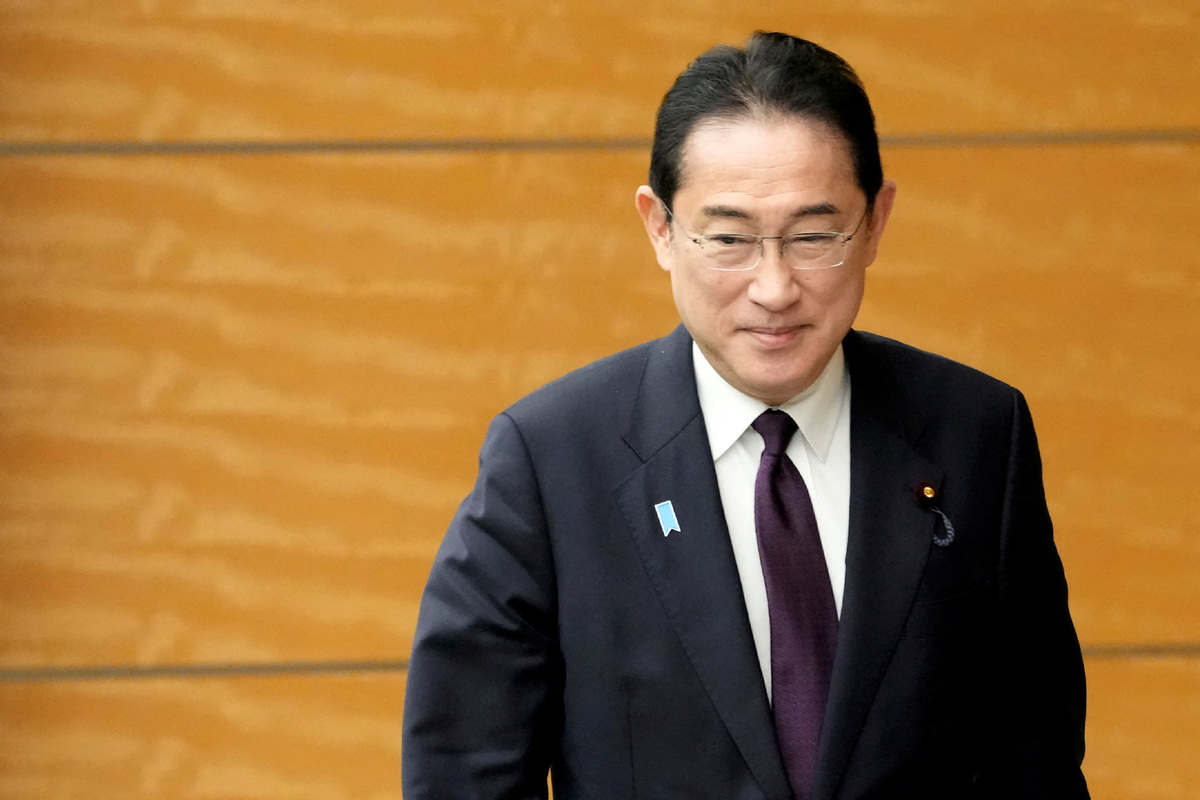Kishida cabinet's approval rating reaches record low
By JIANG XUEQING in Tokyo | China Daily | Updated: 2024-02-21 10:29

Japanese Prime Minister Fumio Kishida has seen his cabinet's approval rating drop to 14 percent — the lowest since he took office in October 2021 — with experts saying that it is evidence that the public is fed up with his administration's inability to clean house amid the ongoing political funds scandal.
The nationwide poll, conducted on Feb 17 and 18 by the Mainichi Shimbun, one of the major newspapers in Japan, showed that the approval rating for the Kishida cabinet fell by 7 percentage points from the previous survey conducted on Jan 27 and 28, hitting the lowest level since former prime minister Taro Aso's cabinet in February 2009.
Kishida's disapproval rating rose by 10 percentage points from the previous survey to 82 percent. This is the first time that the disapproval rating has exceeded 80 percent since July 1947, when the Mainichi Shimbun first asked about cabinet approval ratings in its opinion polls.
The prime minister currently faces issues surrounding a slush fund scandal, undisclosed policy activity expenses, and secret cabinet funds.
However, Kishida and Japan's ruling Liberal Democratic Party seem to show no serious commitment to addressing these issues, said Ukeru Magosaki, co-representative of the Association for Inheriting and Propagating the Murayama Statement.
It appears the Kishida administration believes that the public anger will fade away over time, Magosaki said, but the common people are strongly holding onto their indignation.
"Amid increasing criticism and distrust from the public, Kishida is seen as the breeding ground for the issue of 'politics and money' and the root cause of political fundraising parties, which have come to be associated with slush funds," said Kazuyuki Hamada, a former member of the House of Councilors and a former Japanese parliamentary vice-minister for foreign affairs.
Kishida has been seen through by voters for merely changing LDP factions into policy groups, Hamada said, which is unlikely to restore public trust.
"It is a daunting task for Kishida, whose approval rating has fallen below 20 percent, to win the next LDP leadership election," he said.
Suspicions raised
Concerning kickbacks from fundraising party revenues, citizens are suspicious that, just when it seemed like corruption would be eradicated, it was later revealed that the standard for prosecuting lawmakers is whether they acquired over 30 million yen ($199,551) in slush funds within a period of five years and whether they colluded with secretaries or others, and the investigation was halted, said Kumiko Haba, professor emeritus at Aoyama Gakuin University in Tokyo.
"Currently, it coincides with the period for citizens' tax returns, and at the individual level, citizens are required to declare amounts up to 10,000 yen. However, LDP politicians face no consequences of up to 30 million yen. This collusion between the LDP's corruption and the National Tax Agency is unacceptable," Haba said.
She said the current LDP leadership election predictions show Kishida's chances are quite low.
"To win and regain support, it would require properly addressing the backdoor money issue by disciplining parliament members whose involvement has been revealed and taking a tough stance against corruption," Haba said.
"However, the fact that even Kishida himself has been implicated in the scandal and unable to take action is the biggest blunder," she added.
Haba said it seems necessary to dissolve the parliament and hold fresh elections to properly seek the people's trust. However, the opposition parties are not prepared for elections, and with no cooperation among them, a change in administration is difficult at present, she added.
It will be difficult for the Kishida cabinet to regain support at present, said Magosaki, from the Association for Inheriting and Propagating the Murayama Statement. Various efforts will be made to divide the opposition forces, especially to prevent cooperation between the Constitutional Democratic Party and the Japanese Communist Party, he said.
























